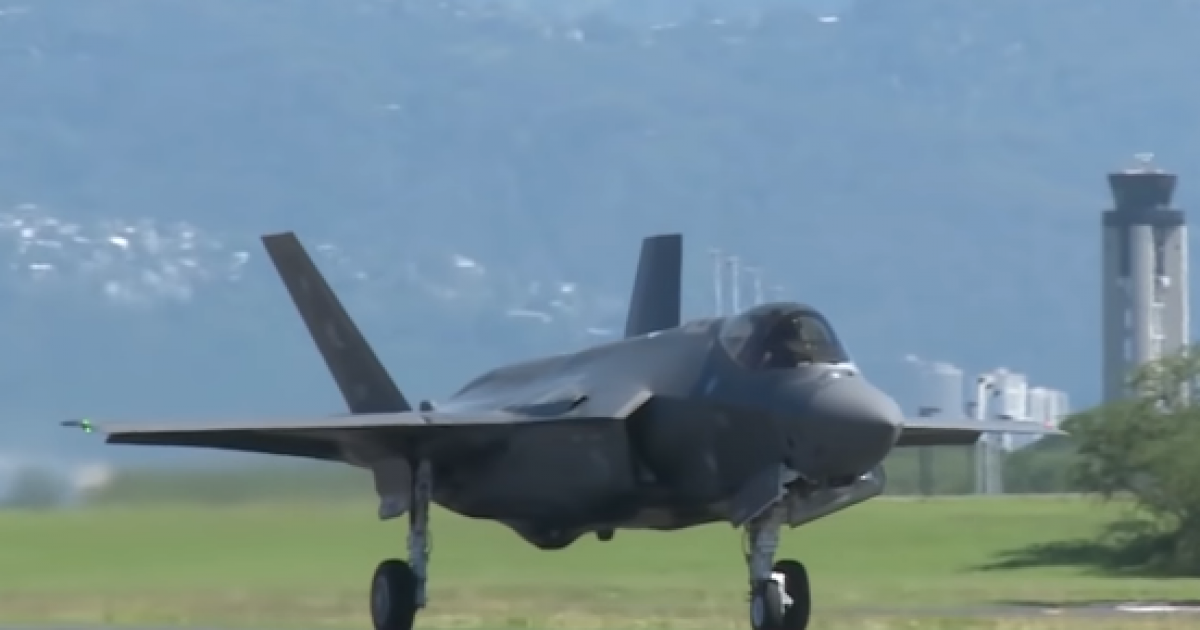
The U.S.’s F-35 program has gained notoriety for being a total spending boondoggle. Jason Paladino at the American Conservative noted that this program has been plagued by “Engine failures, software bugs, supply chain issues, and fundamental design flaws.”
Lockheed Martin has been the program’s lead contractor.
After much scrutiny, Lockheed started worrying about the future of this program. However, it caught a huge break when the commandant of the Marine Corps, General Joseph Dunford ended up joining Lockheed Martin as a member of its board of directors.
Paladino provided some background to Dunford’s advocacy for the F-35 program:
Back in 2015, the F-35 program, already years behind schedule, faced a key program milestone. The goal was to have the F-35B ready for a planned July initial operational capability (IOC) declaration, a major step for the program, greenlighting the plane to be used in combat. The declaration is a sign that the aircraft is nearly ready for full deployment, that things are going well, that the contract, awarded in 2006, was finally producing a usable product. The ultimate decision was in Dunford’s hands.
Although Dunford was enthusiastic about the F-35 making progress at the time (2015), there were some internal figures who had misgivings:
About a week before the declaration, some in the Pentagon expressed serious doubts about the aircraft. The Project On Government Oversight (POGO) obtained a memo from the Director of Operational Test and Evaluation that called foul on the test that was meant to demonstrate the ability of the F-35B to operate in realistic conditions.
Despite these concerns, Dunford insisted that the program was good to go, which Paladino noted:
Dunford, however, said he had “full confidence” in the aircraft’s ability to support Marines in combat, despite the testing office’s report stating that if the aircraft encountered enemies, it would need to “avoid threat engagement”—in other words, to flee at the first sign of an enemy.
Despite these concerns, Dunford ended up greenlighting the initial operational capability. Lockheed Martin was delighted. “Fifty years from now, historians will look back on the success of the F-35 Program and point to Marine Corps IOC as the milestone that ushered in a new era in military aviation,” the company declared in a statement.
Lockheed’s CEO was also thrilled, declaring that it sent “a strong message to everyone that this program is on track.”
That said, there were still doubts about the viability of the program, which Paladino called attention to:
But problems continued to plague the “combat ready” aircraft in the months afterwards. And Dunford downplayed cost overruns and sang the aircraft’s praises at a press event in 2017. When the moderator asked routine questions submitted by the audience (Will the aircraft continue as a program? Is it too expensive to maintain?), Dunford responded by calling the questions loaded and accusing the audience member of having an “agenda.”
Fast forward to September 30, 2019, Dunford stepped down from his position as chairman of the Joint Chiefs. He has been a member of the Marine Corps since 1977. Nearly 4 months later, Dunford joined Lockheed Martin as the director of its board.
Lockheed Martin’s CEO Marillyn Hewson said in a January press release regarding Dunford’s hiring: “General Dunford’s service to the nation at the highest levels of military leadership will bring valuable insight to our board.”
Dunford’s reputation as an F-35 booster and his subsequent hiring at Lockheed has raised speculation about a potential conflict of interest. One former senior military official, retired Colonel Lawrence Wilkerson, who served as special assistant to Colin Powell when he was in charge of the Joint Chiefs, expressed his concern about Lockheed’s hiring decision:
Here he is having been an advocate for it, having pressed it, having pushed for it … and now he’s going to work for the company that makes the aircraft, that just, to me, stinks to high heavens.
According to government data, Lockheed Martin was the primary recipient of Department of Defense dollars in the fiscal year of 2019, when it took over $48 billion. The Center for Responsive Politics reported that the company spent over $13 million lobbying the federal government in 2019.
It’s abundantly clear that national security in the neoliberal/neoconservative era is no longer about preserving national interests,
The never-ending wars not only satisfy the global crusaders, but they keep the military-industrial complex happy, as they rake in big cash.
If we’re serious about containing spending in D.C., cuts in defense and social spending must be on the table.



